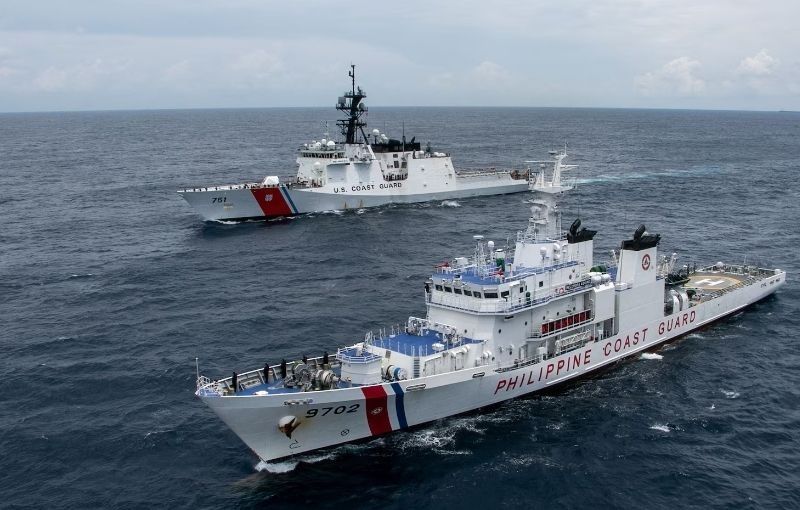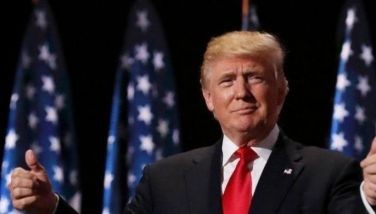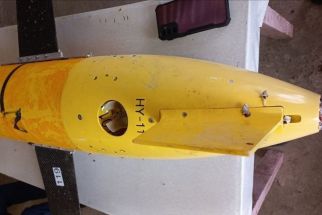US, Germany to stick with Philippines in South China Sea despite political shake-ups

MANILA, Philippines — Western powers pledged continued support for the Philippines in the South China Sea on Friday, November 8, even as they face political transitions at home and stretched military resources from global crises.
Ambassadors from the United States and Germany — countries experiencing or soon to be getting leadership shakeups — stressed that their commitment to upholding the rules-based order in the South China Sea goes beyond domestic politics.
Speaking before an audience of public officials in the Philippines and nations across Southeast Asia, US Ambassador Marykay Carlson expressed optimism that the "very strong bipartisan support" for the US-Philippine alliance will continue that way under President-elect Donald Trump.
Meanwhile, despite Germany's recent government collapse and looming snap elections, German Ambassador Andreas Pfaffernoschke outlined his country's long-term commitment to helping the Philippines maintain stability in the hotly contested waters.
These pronouncements were made during a forum on Friday that brought together government officials and foreign policy experts across Southeast Asia and the Indo-Pacific in Manila.
Dubbed the "Manila Dialogue on the South China Sea," Carlson and Pfaffernoshke were joined by the ambassadors of Canada, Australia and Japan for a panel discussion on the stake of the international community in the South China Sea.
Ambassadors of all five nations shared the same concern: that China's increasingly aggressive actions in the South China Sea threaten freedom of navigation in one of the world's most crucial trade corridors.
Promises of continuity
Carlson carefully addressed concerns about any policy shifts under Trump, whose transactional approach to foreign policy has stoked concerns that the Philippines would be abandoned against China.
RELATED: Trump return to test Philippines’ China strategy, says analysts
Carlson pointed to how many of the 4.5 million Filipino-American voters in the US elections have made their will known. Trump was elected by a majority vote, and over half of the Fil-Am vote likely "mirrored" that, she said.
"Our voters will be expecting the people that they've elected to act in accordance with the will of the people," Carlson said, adding that strong people-to-people and economic relations will likely ensure that Philippine-US ties continue to flourish.
She added that US President Joe Biden's administration is still in place, preferring not to speculate on the specific changes that might come under a Trump administration.
For Germany, despite its domestic political crisis, Pfaffernoschke outlined a clear commitment through political support and capacity building for Philippine forces, including the Philippine Coast Guard.
He also floated the possibility of Germany backing the Philippines at the United Nations if it decides to initiate actions there to counter China's aggression at sea.
"[The 2016 Permanent Court of Arbitration award] is binding, but there's more that can be done on the legal front," the German ambassador said.
"I can share here that my capital is currently thinking about that to support the Philippines and the stability in the region, also with another legal step at the New York at the level of the United Nations," he added.
On the same day that Trump won the US presidency, Germany's coalition government had "broken down," as described by Pfaffernoschke. The German chancellor had sacked his finance minister, breaking the government's three-way coalition and plunging the country into political uncertainty. Elections could be held by January.
"We have to see where we are going," Pfaffernoschke said. "In Germany, we might have new elections at the latest in spring next year, and then we will have to redefine a lot of our politics."
Whether the political upheaval would impact Germany's Indo-Pacific strategy — combined with the Russia-Ukraine war — is too early to tell, Pfaffernoschke said.
But one thing is clear: Germany's resources are limited.
"There are probably growing needs for defense expenditures. There are growing needs because we have more dangerous theaters in the world, and resources are limited," the German ambassador said.
"So we have to strike a difficult balance what to do and how to prioritize. I think this is something every government has to do on a on a permanent basis," he added.
Deterring Chinese aggression
Speaking on China's aggressive maritime behavior, Carlson was particularly direct, calling Beijing's ten-dash line "a cartoon" and "complete fiction."
She stressed that deterrence requires careful balance. "Escalation, appeasement, deterrence, provocation – there's no specific formula. We have to assess at every stage what we can do together to make sure that we stay on the right track so that there is no miscalculation," she said.
Expressing similar commitments of support, Australian Ambassador to the Philippines Hae Kyong Yu stressed the importance of the South China Sea to the world, and not just to the Philippines.
Australia's priority is to prevent missteps that could potentially lead to conflict, Yu said. "Because let's face it, any form of conflict, especially major power conflict, will be catastrophic for our region," she said.
Despite being at a distance from the South China Sea, Canadian Ambassador David Hartman noted the importance of the South China Sea as being essential for global trade and security.
"It is very much at the forefront of Canadian national interests... in order for us to continue to be prosperous, we have to be able to trade and engage with the world," he said.
"We will continue to highlight and showcase and illustrate to the world where we perceive abuses of international law," Hartman said. "We are prepared to do what is required."
Sustained commitment
Ambassadors of all five nations expressed the need for sustained commitment despite China's continued aggression at sea, which has impacted not just the Philippines but also the maritime forces of other claimant states in Southeast Asia.
They also all praised the Philippines' transparency strategy in publicizing its maritime incidents with China, seeing it as an effective diplomatic tool.
Carlson said it would be "naive to expect instant gratification," stressing the need to uphold international order "even if we don't see results today, tomorrow, this year, or over time." Similarly, Japanese Ambassador Endo Kazuya echoed the same support for peace and stability in the region amid more frequent clashes in the disputed waters.
"Since I joined the Japanese Foreign Service for more than 30 years, I think we've been seeing a steady increase of the provocative activities around this region, and we really have to address this matter in a very serious way," he said.
"At the same time, we have to deter the real clash. And that's a very subtle balance," he added.
- Latest
- Trending































